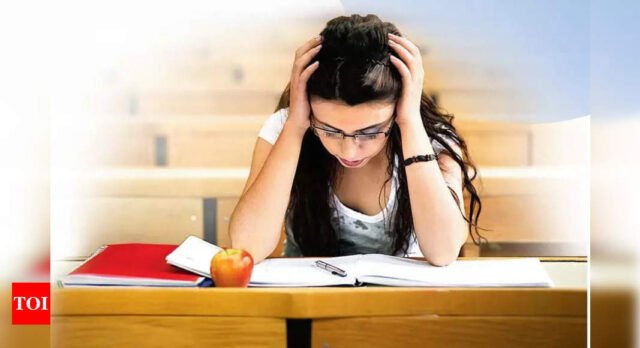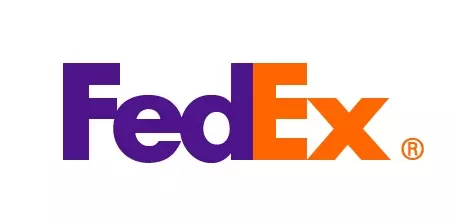Hyderabad: Ahead of the new academic session, several leading schools in Hyderabad are insisting that parents of “academically weak” students produce a learning disability certificate before their children can be promoted to class 10.
Many psychologists TOI spoke to said that in the last few weeks, there had been a sudden surge in parents reaching out to them for a certificate for dyslexia (affects ease of reading, writing, spelling), dysgraphia (difficulty in turning thoughts into written language) or dyscalculia (trouble with understanding number-based information and math) for their children. According to them, the move is an attempt by schools to ensure they achieve a 100% pass percentage in board examinations.
Students with learning disabilities are allowed extra time during exams along with other benefits, such as the use of a scribe to write the test, under rules of CBSE and ICSE boards. This enhances the chances of these students clearing the examination.
“In the last month or so, I received at least 10 to 15 calls from parents asking for a learning disability certificate. They are not even asking to run tests to see if their child really has a problem or not. All they want is a certificate,” said P Jawaharlal Nehru, a senior psychologist.
While Nehru outrightly refuses even a consultation, he said many others are giving in to such demands.
Psychologists say this trend picked up pace post-Covid, when students returned to physical school after attending online classes for almost two years. But lately, the number of such cases has increased exponentially.
Even though a child may be enrolled at the same institute from primary classes, schools are only asking for this certificate when they have to promote the student to class 10.
“This makes no sense. Isn’t it the school’s responsibility to identify if a child has a learning disability at an early stage?” said Anitha Are, a clinical psychologist who has received around 60-70 calls from parents asking for consultation in recent times.
Many parents and psychologists claim several schools are even refusing to let students attend classes until they produce this certificate.
Principals, however, see nothing wrong in this move and maintain that this is being done for the benefit of students.
“Many children are unable to write, learn or calculate. Such students will definitely benefit from this,” said the principal of a top school in Hyderabad, adding, “I feel this is happening more at schools that are taking new admissions in class 9 without proper screening, and only realising later that the child’s learning abilities are lower than the rest.”
The principal, however, admitted that if schools are asking students studying with them for the past four-five years or even longer to produce such certificates, then the onus is on the institution for failing to identify “slow learners”.
Many psychologists TOI spoke to said that in the last few weeks, there had been a sudden surge in parents reaching out to them for a certificate for dyslexia (affects ease of reading, writing, spelling), dysgraphia (difficulty in turning thoughts into written language) or dyscalculia (trouble with understanding number-based information and math) for their children. According to them, the move is an attempt by schools to ensure they achieve a 100% pass percentage in board examinations.
Students with learning disabilities are allowed extra time during exams along with other benefits, such as the use of a scribe to write the test, under rules of CBSE and ICSE boards. This enhances the chances of these students clearing the examination.
“In the last month or so, I received at least 10 to 15 calls from parents asking for a learning disability certificate. They are not even asking to run tests to see if their child really has a problem or not. All they want is a certificate,” said P Jawaharlal Nehru, a senior psychologist.
While Nehru outrightly refuses even a consultation, he said many others are giving in to such demands.
Psychologists say this trend picked up pace post-Covid, when students returned to physical school after attending online classes for almost two years. But lately, the number of such cases has increased exponentially.
Even though a child may be enrolled at the same institute from primary classes, schools are only asking for this certificate when they have to promote the student to class 10.
“This makes no sense. Isn’t it the school’s responsibility to identify if a child has a learning disability at an early stage?” said Anitha Are, a clinical psychologist who has received around 60-70 calls from parents asking for consultation in recent times.
Many parents and psychologists claim several schools are even refusing to let students attend classes until they produce this certificate.
Principals, however, see nothing wrong in this move and maintain that this is being done for the benefit of students.
“Many children are unable to write, learn or calculate. Such students will definitely benefit from this,” said the principal of a top school in Hyderabad, adding, “I feel this is happening more at schools that are taking new admissions in class 9 without proper screening, and only realising later that the child’s learning abilities are lower than the rest.”
The principal, however, admitted that if schools are asking students studying with them for the past four-five years or even longer to produce such certificates, then the onus is on the institution for failing to identify “slow learners”.







